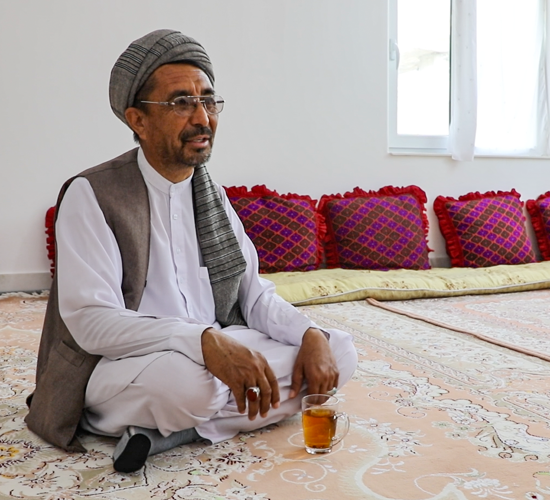Just northwest of the ancient Silk Road city of Herat, on the road to Iran and the saffron fields of Ghorian, lies the neat town of Jebrail. It has tree-lined streets, play parks for children and thriving schools and businesses to serve the population of 80,000 people.
10 years ago, Jebrail was once dangerous and desolate, a sparsely populated wasteland because it was mined repeatedly by Soviet and Mujaheddin forces during the fighting of the 1980s.
"Previously, this area was a desert," says Mohammed, head of the Jebrail council. "People lived in fear, children were unable to walk and play games in this area. The mines left us feeling in danger."

From 2011 to 2014, HALO Afghanistan deminers worked tirelessly to clear the minefields and battlefields of Jebrail, removing dangerous landmines and making the town safe again. A decade later, Jebrail has been completely transformed. Parks, schools, and health clinics now fill the spaces once scarred by conflict, showing the powerful, life-changing impact of landmine clearance. The only trace of its hazardous past are the faded ticks painted on older walls—quiet reminders of the areas HALO deminers made safe, allowing the community to thrive.

"After clearance, people were feeling safe, construction work started. Investment started. Most of the people came here for a better life. Schools, parks and clinics were established providing opportunities for people to live good lives here."
Ten years after HALO cleared the minefields near Herat city, the new district, home to 80,000 people, is a refuge for Afghanistan's most persecuted community – the Hazara.
Councilor Mohammed adds: "Many of the people living here have returned from Iran, Pakistan, and other countries. During the conflict, my family migrated to Pakistan and Iran for a period, eventually coming here from Ghazni province. Others have come from other provinces of Afghanistan. War and natural disasters have also driven some of them here. Most people have selected this area because of better life opportunities."
Most of the residents of Jabrial are Hazara. Some Tajiks are also living here along with Pashtuns, but they are rare. Most of the people are Hazara."
The Hazara people are one of the many ethnic groups in Afghanistan, and have suffered discrimination and persecution, including being targeted by terrorist groups in recent years.
Thanks to HALO’s incredible donor community and the hard work of our deminers, this once dangerous area is now a safe place for them to call home.

